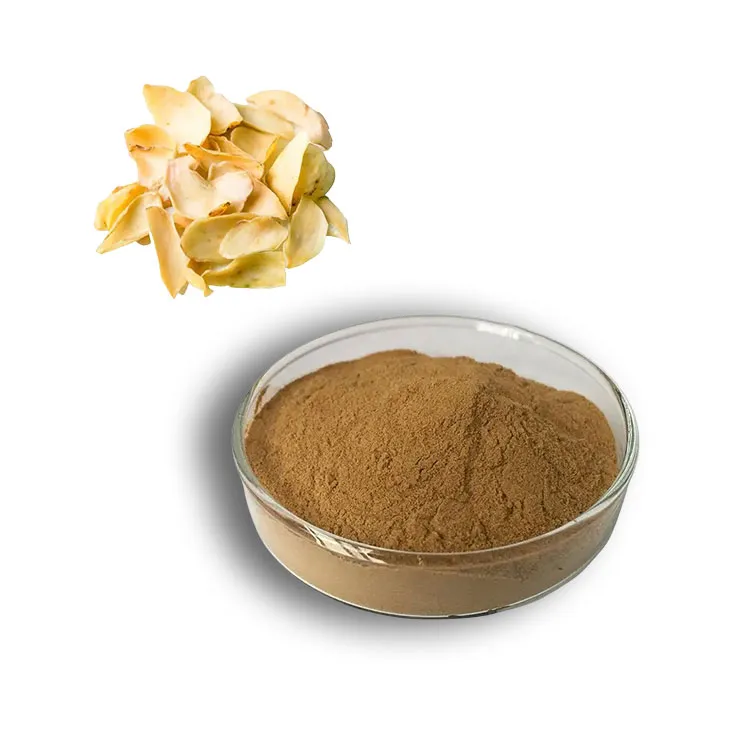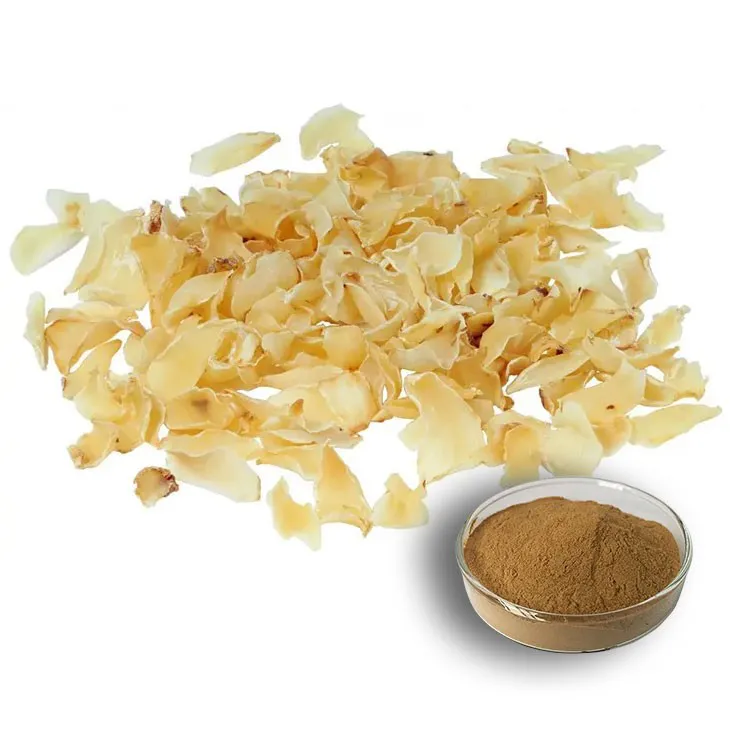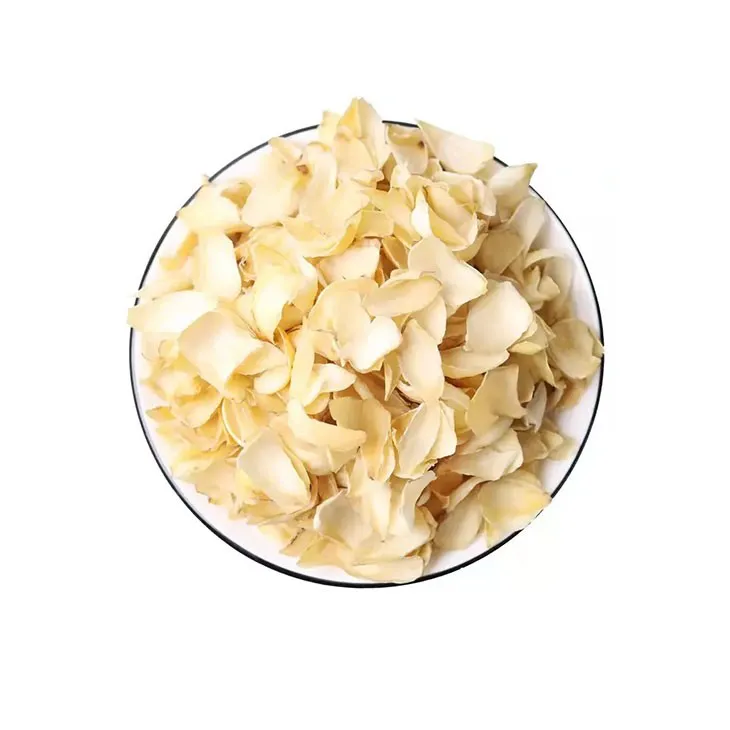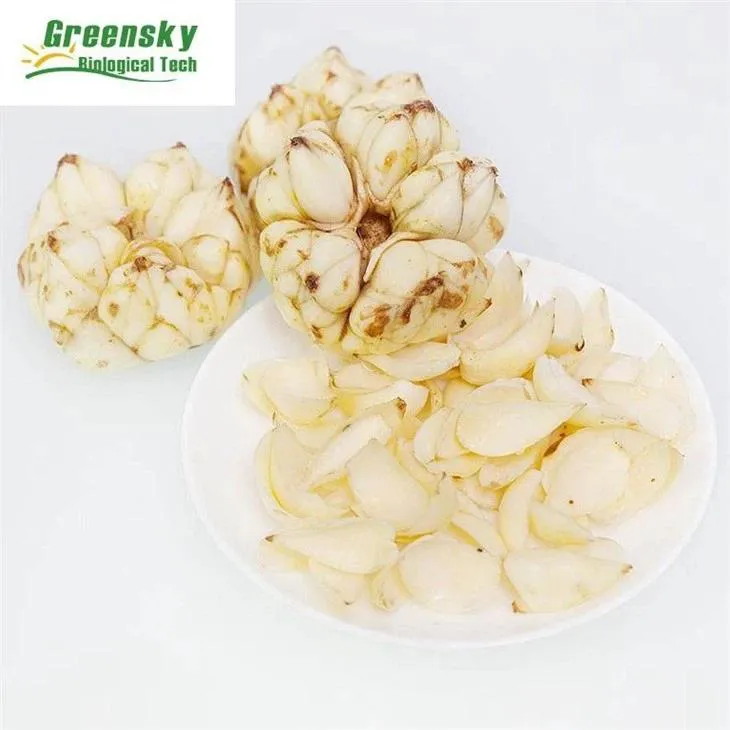- 0086-571-85302990
- sales@greenskybio.com
Lily extract suppliers.
2024-11-30

1. Introduction to Lily extract
Lily extract has gained significant popularity in recent years due to its numerous beneficial properties. It is rich in various bioactive compounds, such as flavonoids, alkaloids, and polysaccharides. These compounds are responsible for its wide range of applications in different industries. For example, in the pharmaceutical industry, Lily extract may have potential medicinal values, including anti - inflammatory, antioxidant, and anti - tumor effects. In the nutraceutical sector, it is often used as a dietary supplement to promote health and well - being. The cosmetics industry also benefits from lily extract, as it can be used in skincare products for its moisturizing, anti - aging, and whitening properties. Moreover, in the food industry, lily extract can be added to certain products as a natural flavor enhancer or preservative.

2. Importance of High - Quality Suppliers
High - quality lily extract suppliers are essential for several reasons. Firstly, they ensure the purity of the extract. The purity of lily extract is crucial as it directly affects its safety and efficacy. Suppliers with advanced purification techniques can remove impurities, such as heavy metals, pesticides, and other contaminants, from the extract. Secondly, they guarantee the potency of the product. The bioactive compounds in lily extract should be present in sufficient quantities to exert their desired effects. Reputable suppliers use standardized extraction methods to ensure consistent potency. Thirdly, consistency is another key factor. Customers in different industries rely on suppliers to provide lily extract with consistent quality over time. This allows for stable production processes and reliable end - products.

3. Advanced Extraction Techniques
Modern lily extract suppliers often employ advanced extraction techniques to obtain high - quality extracts. One commonly used method is supercritical fluid extraction (SFE). SFE uses supercritical fluids, such as carbon dioxide, as solvents. This technique has several advantages. It is a clean and green extraction method, as carbon dioxide is non - toxic, non - flammable, and easily removable from the extract. Moreover, it can selectively extract the desired compounds from the lily, resulting in a more pure and potent extract. Another technique is microwave - assisted extraction (MAE). MAE utilizes microwave energy to accelerate the extraction process. This can significantly reduce the extraction time while maintaining the quality of the extract. Additionally, ultrasonic - assisted extraction (UAE) is also popular. UAE uses ultrasonic waves to disrupt the cell walls of the lily, facilitating the release of the bioactive compounds into the solvent.

4. Strict Quality Control Systems
4.1 Raw Material Selection
High - quality lily extract suppliers start with strict raw material selection. They source their lilies from reliable growers. These lilies should be of high quality, free from diseases and pests. The origin of the lilies also matters, as different regions may produce lilies with different characteristics. For example, some regions may have lilies with higher levels of certain bioactive compounds. Suppliers often conduct inspections and tests on the raw lilies to ensure their suitability for extraction.
4.2 In - process Quality Control
During the extraction process, suppliers implement in - process quality control measures. They monitor various parameters, such as temperature, pressure, and extraction time, to ensure that the extraction is carried out under optimal conditions. Any deviation from the standard operating procedures may affect the quality of the extract. For example, if the temperature is too high during extraction, it may cause the degradation of some bioactive compounds. Regular sampling and analysis are also carried out during the process to check the quality of the intermediate products.
4.3 Final Product Testing
Before the lily extract is released to the market, comprehensive final product testing is performed. The tests include purity analysis, potency determination, and stability testing. Purity analysis checks for the presence of impurities, such as residual solvents, heavy metals, and pesticides. Potency determination measures the content of the bioactive compounds in the extract. Stability testing assesses how the extract behaves under different storage conditions, such as temperature, humidity, and light exposure. Only those products that pass all the tests are considered suitable for sale.

5. Sourcing the Finest Lilies
5.1 Considerations for Lily Sourcing
When sourcing lilies, suppliers need to consider several factors. Geographical origin is an important factor. As mentioned earlier, different regions may produce lilies with different qualities. For example, lilies grown in certain mountainous areas may have better adaptability to the environment and thus higher levels of bioactive compounds. Cultivation methods also play a role. Organic cultivation methods are preferred by many suppliers as they result in lilies with fewer pesticide residues. Additionally, the harvesting time of lilies is crucial. Lilies should be harvested at the right time to ensure the maximum content of bioactive compounds. Harvesting too early or too late may lead to a decrease in the quality of the lilies.
5.2 Sustainable Sourcing
Many forward - looking lily extract suppliers are now focusing on sustainable sourcing. This means not only ensuring the quality of the lilies but also protecting the environment and the livelihoods of local farmers. Sustainable sourcing practices may include promoting fair trade, reducing the use of chemical fertilizers and pesticides, and protecting the natural habitats of lilies. By adopting sustainable sourcing methods, suppliers can contribute to the long - term availability of high - quality lilies and also enhance their corporate social responsibility image.
6. Applications in Different Industries
6.1 Pharmaceutical Industry
In the pharmaceutical industry, lily extract has shown great potential. Its anti - inflammatory properties can be used to develop drugs for treating inflammatory diseases, such as arthritis. The antioxidant effects of lily extract may also help in preventing oxidative stress - related diseases, such as cardiovascular diseases. Moreover, some studies have suggested that lily extract may have anti - tumor activities, although more research is needed in this area. Pharmaceutical companies rely on high - quality lily extract suppliers to provide pure and potent extracts for their research and development activities.
6.2 Nutraceutical Sector
The nutraceutical sector is another major consumer of lily extract. As a dietary supplement, lily extract can be formulated into capsules, tablets, or powders. Consumers are increasingly interested in natural health products, and lily extract fits this trend well. It can be promoted for its various health benefits, such as improving immunity, enhancing digestion, and relieving stress. Suppliers in this sector need to ensure that their lily extract products meet the regulatory requirements for dietary supplements, including proper labeling and quality assurance.
6.3 Cosmetics Industry
Lily extract has found wide applications in the cosmetics industry. In skincare products, it can be used as a key ingredient in moisturizers, anti - aging creams, and whitening serums. Its moisturizing properties are due to its ability to retain water, which helps to keep the skin hydrated. The anti - aging effects may be attributed to its antioxidant and anti - inflammatory properties, which can reduce the damage caused by free radicals and inflammation on the skin. For whitening products, lily extract may inhibit the production of melanin, resulting in a lighter skin tone. Cosmetic companies look for lily extract suppliers who can provide extracts with consistent quality for their product formulations.
6.4 Food Industry
In the food industry, lily extract can be used in various ways. It can be added to baked goods, beverages, and confectionery as a natural flavor enhancer. The unique flavor of lily can add a pleasant and delicate taste to these products. Additionally, lily extract may also have some preservative effects, which can help to extend the shelf life of food products. However, in the food industry, strict regulations regarding food additives must be followed, and suppliers need to ensure that their lily extract products are compliant with these regulations.
7. Commitment to Quality Assurance, Research, and Development
7.1 Quality Assurance
Quality assurance is a top priority for lily extract suppliers. They invest in state - of - the - art testing equipment and employ highly trained technicians to ensure the quality of their products. Quality assurance also involves continuous improvement of their production processes. Suppliers regularly review and update their standard operating procedures to meet the changing requirements of the market and regulatory authorities.
7.2 Research and Development
Research and development play an important role in the lily extract industry. Suppliers are constantly exploring new extraction techniques and purification methods to improve the quality and yield of their extracts. They also collaborate with research institutions and universities to conduct in - depth studies on the bioactive compounds in lily extract. These studies can help to uncover new applications and health benefits of lily extract, which in turn can drive the growth of the industry.
8. Standing Out in the Competitive Market
8.1 Product Differentiation
To stand out in the competitive market, lily extract suppliers need to focus on product differentiation. This can be achieved through offering unique products, such as lily extract with higher levels of specific bioactive compounds or extracts with special properties. For example, some suppliers may offer lily extract with enhanced antioxidant activity or improved solubility. Product differentiation can help suppliers to target specific customer segments and gain a competitive edge.
8.2 Customer Service
Excellent customer service is also crucial for suppliers. This includes providing timely responses to customer inquiries, offering technical support, and ensuring on - time delivery of products. By providing good customer service, suppliers can build long - term relationships with their customers and enhance their reputation in the market.
8.3 Brand Building
Building a strong brand is another way for suppliers to stand out. A well - known brand can convey a sense of quality and reliability to customers. Suppliers can build their brands through marketing and advertising activities, participation in industry exhibitions, and obtaining relevant certifications. For example, certifications such as GMP (Good Manufacturing Practice) can enhance the credibility of a supplier's products.
FAQ:
What are the key factors to consider when choosing a lily extract supplier?
When choosing a lily extract supplier, several key factors should be considered. Firstly, the quality control system is crucial. A reliable supplier should have strict quality control measures to ensure the purity, potency, and consistency of the lily extract. Secondly, the extraction techniques they use. Advanced extraction techniques can better preserve the beneficial compounds in lilies. Also, the source of lilies matters. They should source high - quality lilies for extraction. Additionally, their experience and reputation in the market, especially in serving industries like pharmaceuticals, nutraceuticals, cosmetics, and food, are important indicators.
How can one ensure the purity of lily extract from a supplier?
To ensure the purity of lily extract from a supplier, one can ask the supplier for detailed information about their quality control processes. Reputable suppliers usually conduct various tests during the extraction process, such as chromatography to detect impurities. They also should have proper documentation and certifications regarding the purity of their products. Checking for third - party testing reports can also be a good way to verify the purity. Moreover, a supplier with a good reputation in the industry and a long - standing history of providing high - quality products is more likely to offer pure lily extract.
What industries do lily extract suppliers mainly serve?
Lily extract suppliers mainly serve several industries. The pharmaceutical industry is one of the major ones, as lily extract may have potential medicinal properties. The nutraceutical sector also uses lily extract for dietary supplements. In the cosmetics industry, lily extract can be found in various products like creams and lotions due to its beneficial effects on the skin. Additionally, the food industry is also a customer, as lily extract can be used as a natural flavoring or additive in some food products.
How do lily extract suppliers ensure the consistency of their products?
To ensure the consistency of their products, lily extract suppliers use standardized extraction processes. They carefully control factors such as the type and quality of lilies used, the extraction conditions (including temperature, pressure, and solvent), and the purification steps. Regular quality checks at different stages of production are also carried out. By maintaining strict records of all these processes and continuously monitoring and adjusting them, suppliers can ensure that the lily extract they produce has consistent quality in terms of its chemical composition, potency, and physical characteristics.
What are the benefits of choosing a supplier with advanced extraction techniques?
Choosing a supplier with advanced extraction techniques has several benefits. Advanced techniques can extract a higher concentration of beneficial compounds from lilies, which means more effective products for the end - use industries. These techniques are often more precise and can better preserve the integrity of the active ingredients, resulting in a higher - quality lily extract. Suppliers with advanced extraction techniques are also more likely to be able to meet the specific requirements of different industries, such as pharmaceutical companies that may need highly purified and standardized extracts. Additionally, advanced techniques can often lead to more efficient production processes, which may translate into more stable supply and potentially lower costs.
Related literature
- Lily Extract: Properties, Production, and Applications"
- "Quality Assurance in Lily Extract Supply for Pharmaceutical Use"
- "The Role of Lily Extract in the Cosmetics Industry: Supplier Perspectives"
- ▶ Hesperidin
- ▶ Citrus Bioflavonoids
- ▶ Plant Extract
- ▶ lycopene
- ▶ Diosmin
- ▶ Grape seed extract
- ▶ Sea buckthorn Juice Powder
- ▶ Fruit Juice Powder
- ▶ Hops Extract
- ▶ Artichoke Extract
- ▶ Mushroom extract
- ▶ Astaxanthin
- ▶ Green Tea Extract
- ▶ Curcumin
- ▶ Horse Chestnut Extract
- ▶ Other Product
- ▶ Boswellia Serrata Extract
- ▶ Resveratrol
- ▶ Marigold Extract
- ▶ Grape Leaf Extract
- ▶ New Product
- ▶ Aminolevulinic acid
- ▶ Cranberry Extract
- ▶ Red Yeast Rice
- ▶ Red Wine Extract
-
Hawthorn powder
2024-11-30
-
Carrageenan Extract Powder
2024-11-30
-
Lotus leaf extract
2024-11-30
-
Sea buckthorn Juice Powder
2024-11-30
-
Astaxanthin
2024-11-30
-
Rosemary extract
2024-11-30
-
Tongkat Ali Extract
2024-11-30
-
Licorice Root Extract Powder
2024-11-30
-
White mustard seed extract
2024-11-30
-
Chasteberry Extract
2024-11-30





















